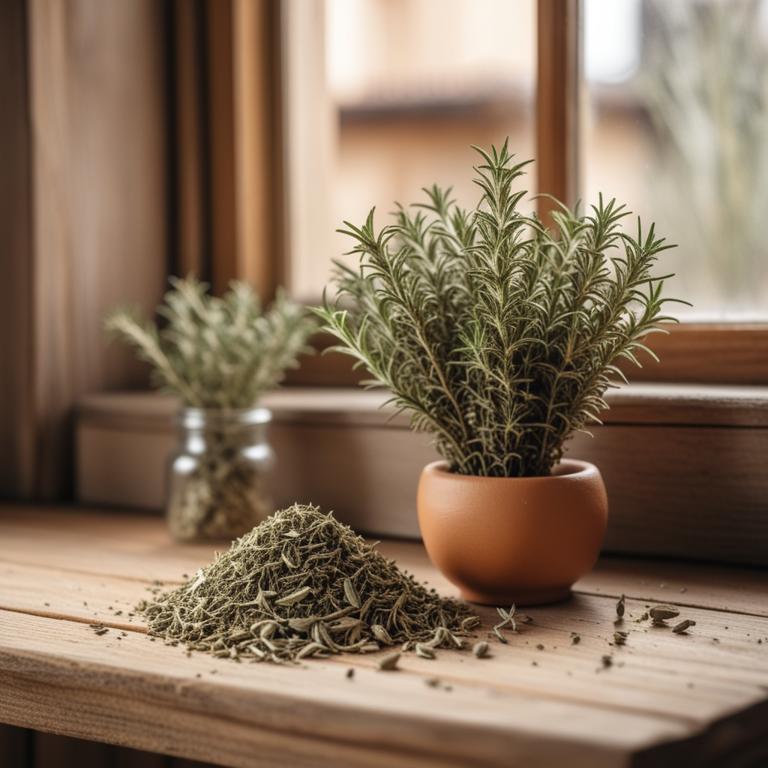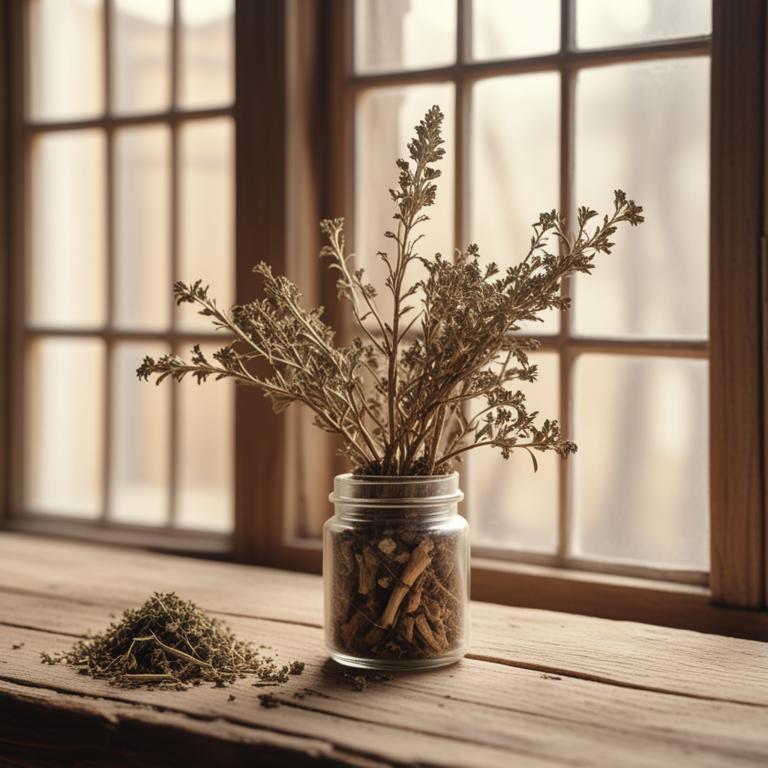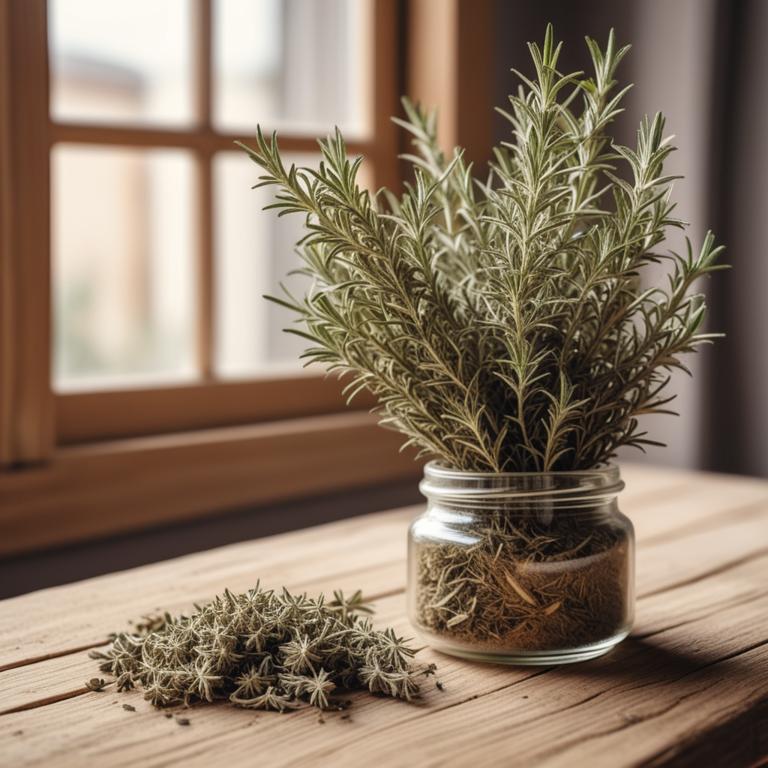Updated: Dec 1, 2024
Tickling Throat Remedies: Causes, Medicinal Herbs, and Herbal Preparations for Sore Throat

Tickling throat, also known as globus pharyngeus, is a common condition where you feel like something is stuck in your throat, causing discomfort and anxiety.
It can make it hard to swallow, eat, and even breathe, affecting your daily life in many ways. You might feel like you're constantly clearing your throat or trying to dislodge the sensation. The exact causes of tickling throat are not always clear, but it's often linked to stress, anxiety, and acid reflux. Sometimes, it can be triggered by certain foods, allergies, or even sinus problems.
Fortunately, there are some natural remedies that can help soothe your tickling throat. Herbs like slippery elm, licorice root, and marshmallow root have anti-inflammatory properties that can calm your throat and reduce inflammation. You can prepare these herbs in various ways to get relief from tickling throat. Slippery elm and marshmallow root can be made into teas by steeping them in hot water. Licorice root can be taken as a decoction, made by boiling the roots in water.
You can also mix these herbs with other soothing ingredients like honey and lemon to create a comforting drink.
Table of Contents
- What triggers tickling throat?
- What are the advantages of using herbs to soothe a tickling throat?
- What are the key medicinal herbs for alleviating a tickling throat?
- What are the most popular herbal remedies for a tickling throat?
- Are there any herbs you should steer clear of with a tickling throat?
- FAQ
What triggers tickling throat?
The main causes of tickling throat are often related to the body's response to various irritants and underlying health conditions.
One common cause is allergies, which trigger the production of histamine, leading to increased mucus production and swelling in the throat. This swelling and excess mucus can cause a tickling sensation. Cold and flu viruses can also cause tickling in the throat. When these viruses infect the body, they cause inflammation and irritation in the throat, leading to a tickling sensation. Postnasal drip, where mucus from the nose drips down the back of the throat, can also cause tickling.
This happens when the nasal passages are congested due to allergies or a cold. Acid reflux, also known as gastroesophageal reflux, occurs when stomach acid flows back up into the throat. This can cause irritation and inflammation in the throat, leading to a tickling sensation. Gastroesophageal reflux is often a result of a weakened lower esophageal sphincter, allowing stomach acid to flow back up into the throat. Lastly, irritants such as smoke, dust, and strong odors can cause tickling in the throat. When these irritants enter the body, they can cause inflammation and irritation in the throat, leading to a tickling sensation.
In addition, other irritants like spicy foods or cold drinks can also cause tickling in the throat.
What are the advantages of using herbs to soothe a tickling throat?
Using certain herbs for a tickling throat can be super helpful.
These herbs have natural properties that can soothe and calm the throat. They can reduce inflammation and ease discomfort, making it easier to swallow and speak.
Some herbs can even help loosen and clear mucus, making it easier to get rid of a tickly throat. Additionally, these herbs can also help to boost the immune system, which can help to prevent future tickly throats. They can be consumed as tea, added to food, or even made into a syrup to make them more palatable.
Some herbs can also be used as a natural expectorant, which means they can help bring up mucus and phlegm, making it easier to breathe and feel better.
What are the key medicinal herbs for alleviating a tickling throat?
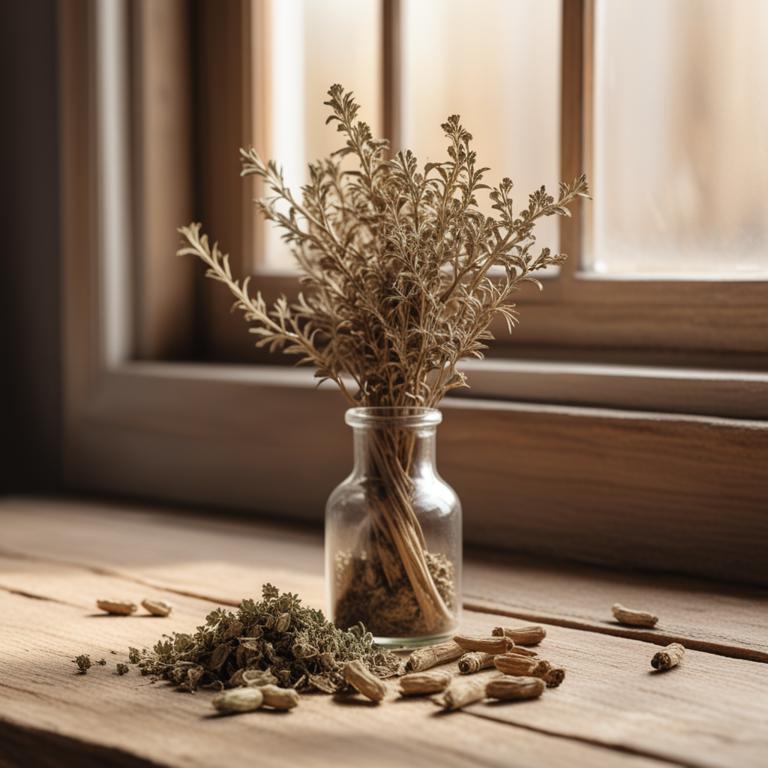
Herbs can be really helpful in soothing a tickly throat.
Let's take a look at some of the best ones. Glycyrrhiza glabra, or licorice root, is a great option because it has a natural anti-inflammatory property that can calm down the throat and reduce swelling. This makes it easier to swallow and talk without discomfort. On the other hand, Zingiber officinale, or ginger, has a spicy warmth that can help to loosen up mucus and ease congestion in the throat. It also has anti-inflammatory properties, which can help to reduce swelling and soothe the throat. Another herb that's great for a tickly throat is Echinacea purpurea.
It's known for its immune-boosting properties, which can help to fight off infections that might be causing the tickling sensation. But it also has anti-inflammatory properties that can help to reduce swelling and soothe the throat. Eucalyptus globulus, or eucalyptus, is another herb that's often used to help with respiratory issues. Its menthol content can help to thin out mucus and make it easier to cough up, which can help to relieve congestion and discomfort in the throat. Lastly, Mentha x piperita, or peppermint, is a great herb for a tickly throat. Its menthol content can help to cool down the throat and reduce inflammation, which can make it easier to swallow and talk. It also has a refreshing and calming effect that can help to reduce stress and anxiety, which can often exacerbate a tickly throat.
These herbs are all great options for soothing a tickly throat, and they can be used in teas, infusions, or even as a natural remedy on their own.
What are the most popular herbal remedies for a tickling throat?
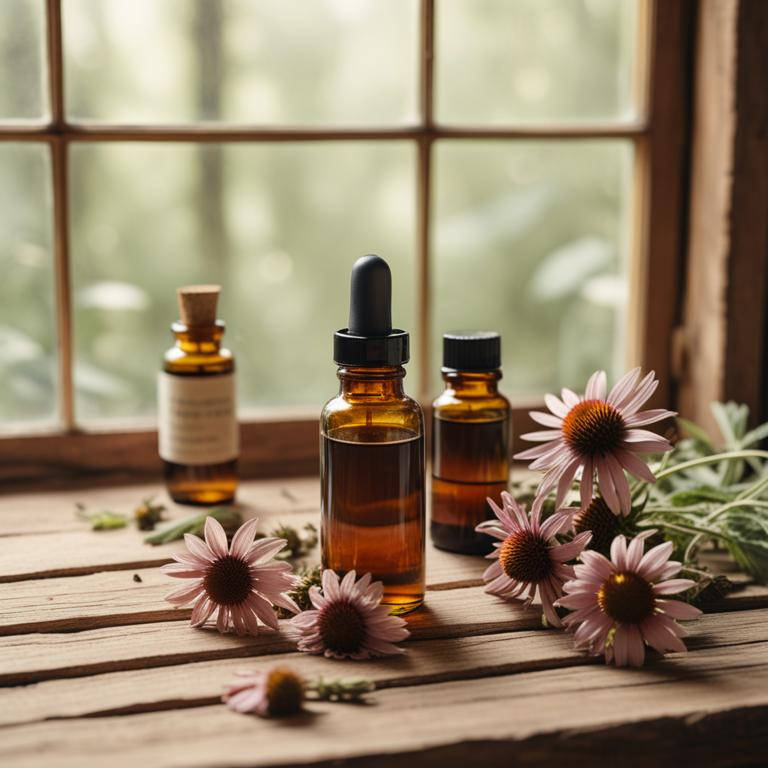
When we have a tickling throat, we need something to help soothe it and make us feel better.
Herbal preparations can be really helpful in this situation. Let's talk about some common ones. Decoction is one way to make herbal remedies. It's when we boil herbs in water to make a strong liquid that we can drink. Herbs like slippery elm and licorice root are great for soothing a sore throat. They help to reduce inflammation and make our throat feel better. Another option is a tincture, which is a concentrated liquid made from herbs. We can put a few drops of the tincture under our tongue or mix it with water to drink.
Tinctures made from herbs like echinacea and eucalyptus can help to boost our immune system and relieve congestion. If we prefer to take our herbal remedies in a capsule, that's okay too. Capsules are a convenient way to get our daily dose of herbs. For a tickling throat, capsules made from herbs like ginger and turmeric can help to reduce inflammation and ease pain. We can also use herbal preparations to gargle with. Gargling with a mixture of herbs and water can help to soothe our throat and reduce inflammation. Herbs like sage and thyme are great for gargling, as they have antibacterial properties that can help to fight off infections. Finally, there's cough syrup made from herbs. This is a liquid that we can drink to help soothe our throat and relieve a cough.
Herbs like honey and marshmallow root are commonly used in cough syrups to help soothe our throat and calm a cough.
Additional Resources:
Are there any herbs you should steer clear of with a tickling throat?
If you have a tickling throat, it's best to avoid using certain herbs, especially when consuming them in large amounts.
Thyme (Thymus vulgaris) is one of them, as its essential oils can be quite harsh on the throat, making it feel even itchier. Similarly, rosemary (Rosmarinus officinalis) has a strong, drying effect that can irritate the throat and make the tickling worse.
Sage (Salvia officinalis) is another herb to be careful with, as its drying properties can dry out the throat, making the tickling sensation even more uncomfortable. Lavender (Lavandula angustifolia) is often used to calm the mind and body, but its calming effects don't extend to the throat, and its essential oils can still irritate a tickling throat. Cinnamon (Cinnamomum verum) is a spice that's often used in small amounts, but its strong, warm flavor can be overwhelming for a sensitive throat, and its essential oils can still cause irritation.
When you have a tickling throat, it's best to stick to gentle, soothing herbs like slippery elm or licorice root, which can help calm and protect your throat.
FAQ
Are there any specific herbs that can prevent tickling throat?
There are some herbs that may help soothe a tickling throat.
Licorice root is often used to calm inflammation and reduce irritation. Thyme is another herb that has natural antibacterial properties, which can help combat underlying infections causing the tickling sensation.
Ginger has anti-inflammatory properties that can also help ease throat discomfort.
Is it safe to use herbal remedies for tickling throat during pregnancy?
When you have a tickling throat during pregnancy, you might want to try herbal remedies.
However, it's best to be cautious. Some herbs can affect your baby's development or cause other problems. Always check the ingredients and look for products that are safe for pregnant women.
Even then, it's a good idea to talk to someone about what you're using.
Are there any herbs that can reduce the frequency of tickling throat?
Ginger and licorice root are often used to soothe a tickling throat.
Ginger has anti-inflammatory properties that can help calm irritation, while licorice root has natural soothing properties that can ease discomfort.
Drinking ginger tea or taking licorice root supplements may help reduce the frequency of tickling throat.
Can i combine different herbal remedies for tickling throat?
You can combine different herbal remedies for a tickling throat, but be cautious with the amounts and interactions.
For example, you can mix some slippery elm with licorice root tea to soothe and calm your throat.
This can be especially helpful if you're experiencing a dry or irritated throat.
Related Articles
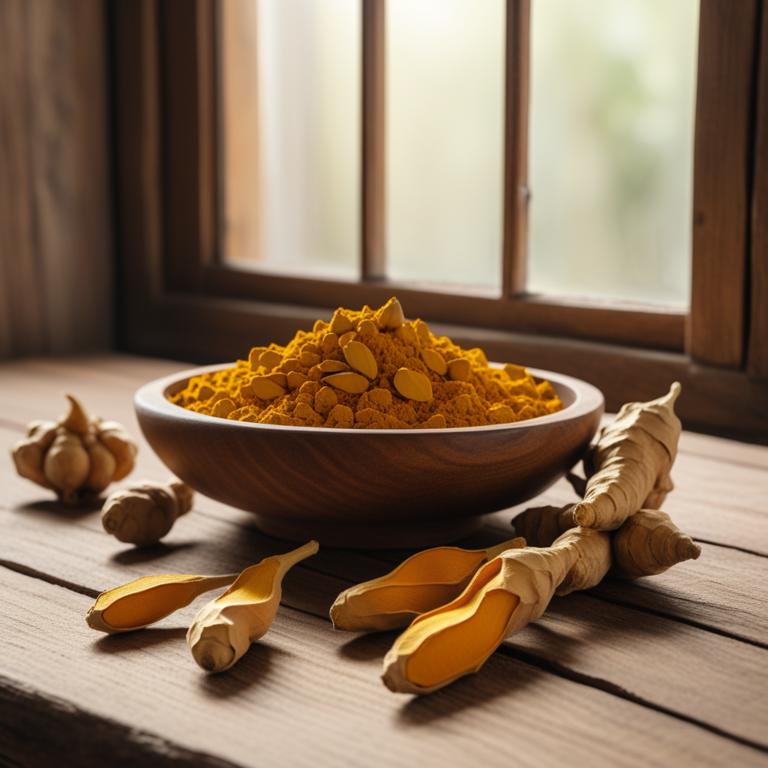
Emphysema Causes, Symptoms, and Herbal Relief Options
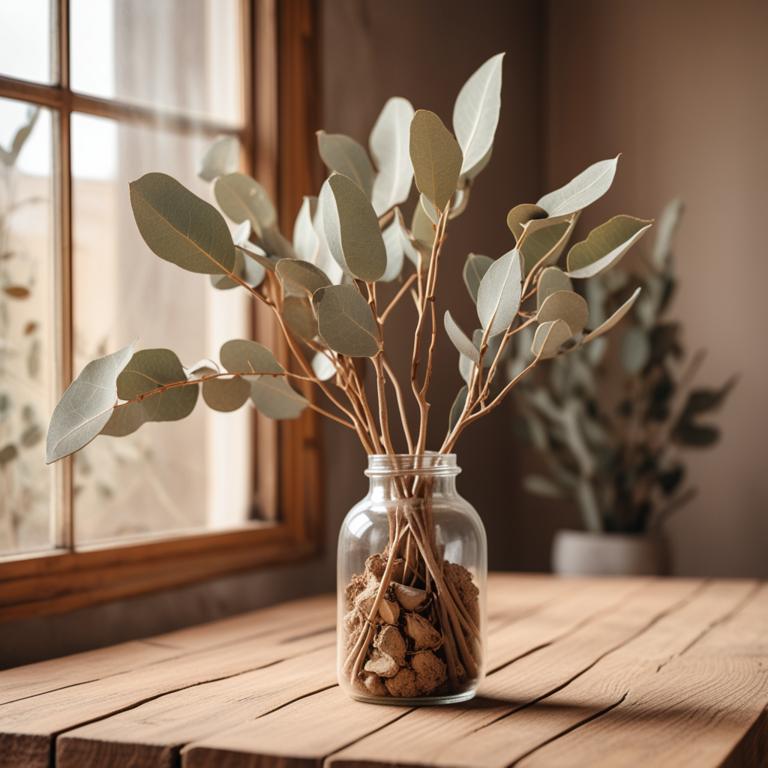
Runny Nose Causes and Herbal Preparations: A Comprehensive Guide
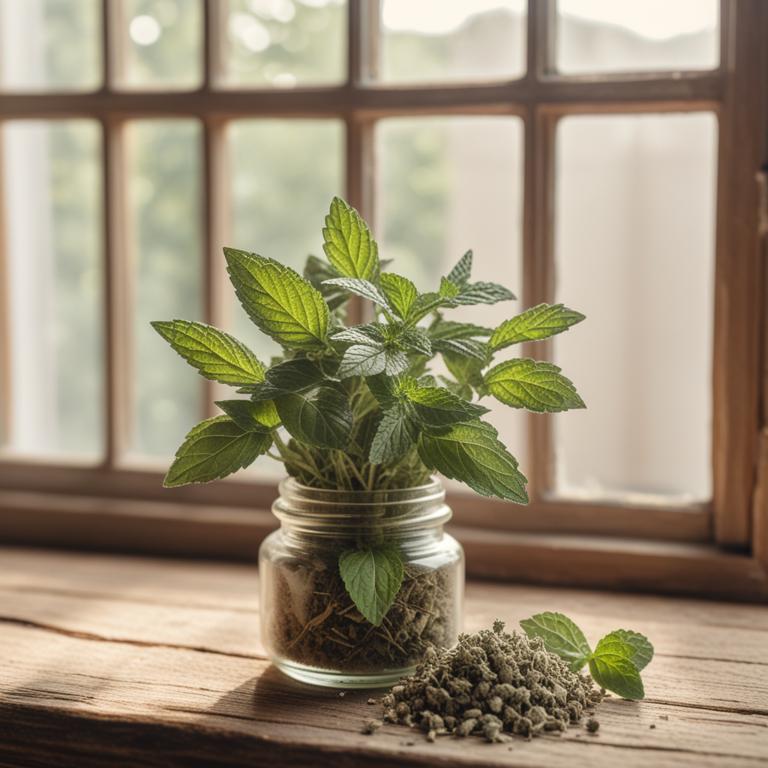
Laryngitis: Causes, Symptoms, and Herbal Preparations for Relief
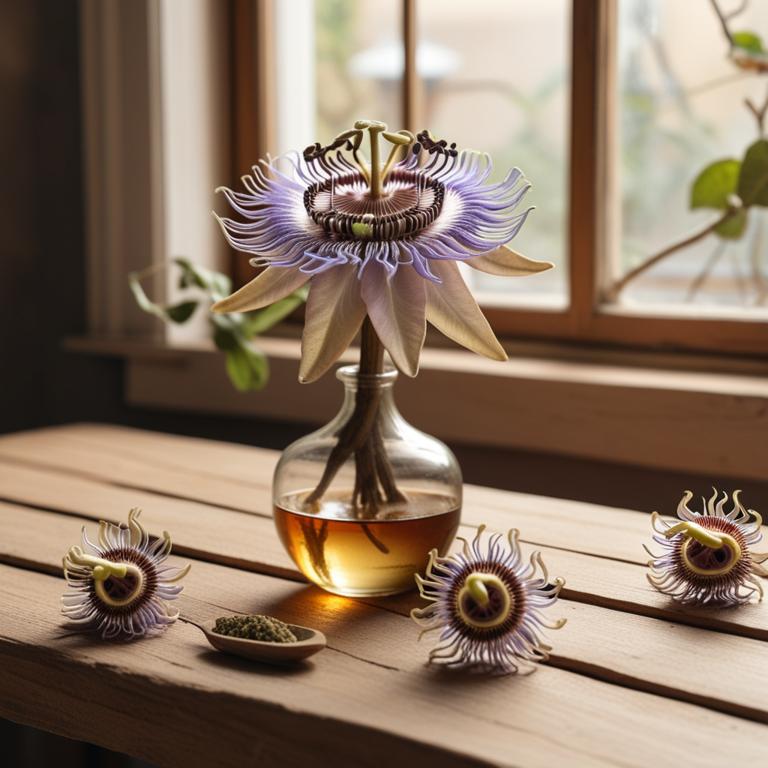
Snoring: Causes, Herbal Remedies, and a Good Night's Sleep
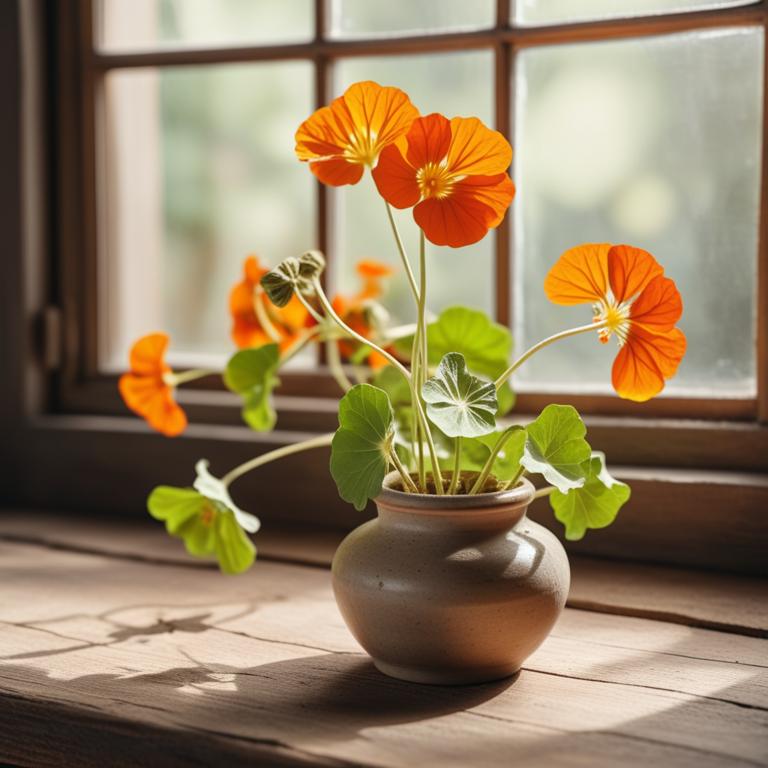
Hay Fever: Causes, Herbal Preparations, and Medicinal Herbs for Relief




